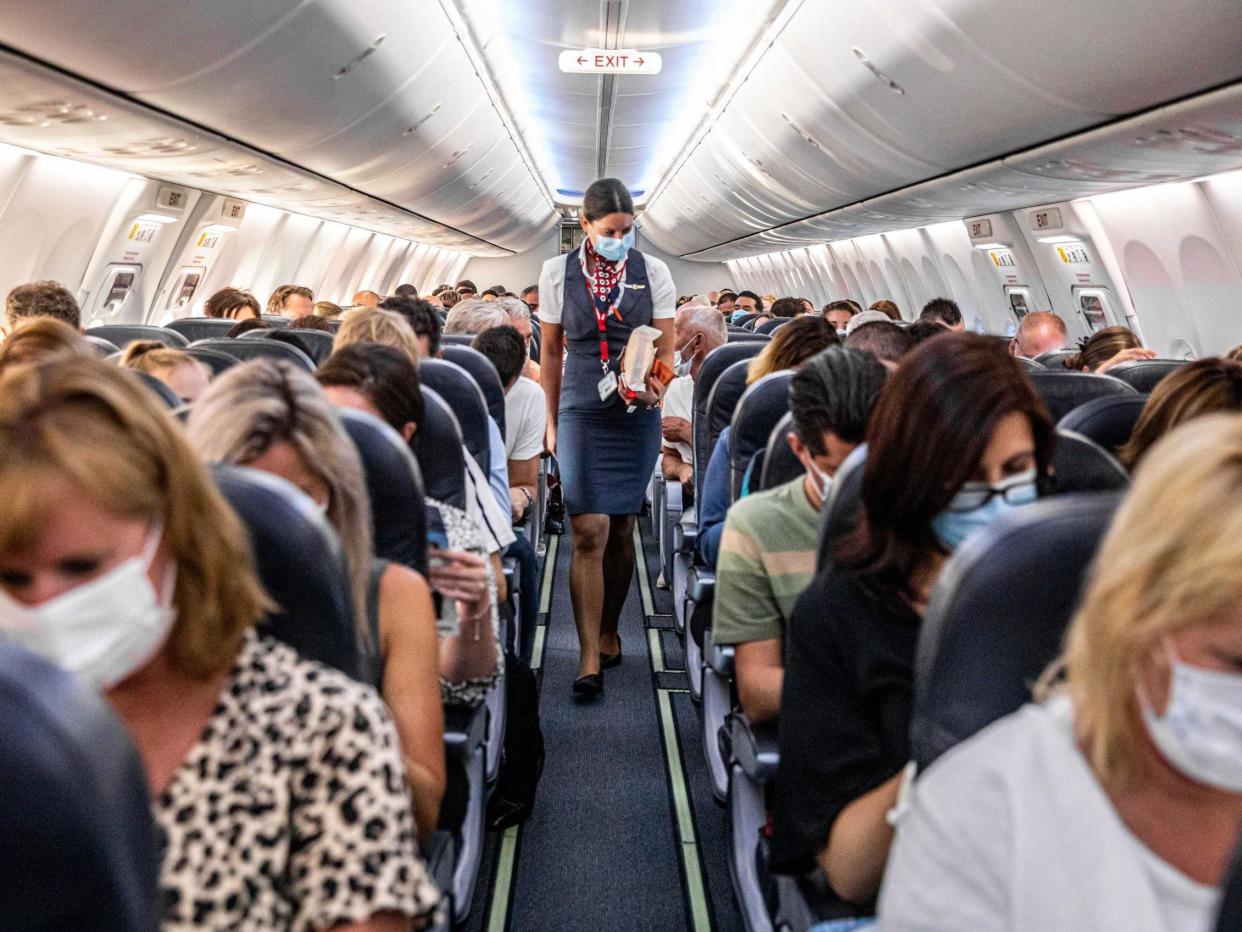Keeping middle seat empty on flights almost halves risk of coronavirus infection, claims study

Deliberately keeping the middle seat empty on flights could almost halve the risk of catching coronavirus, a new paper has claimed.
The chances of becoming infected with Covid-19 during a flight drop from about 1 in 4,300 as of early July 2020 to about 1 in 7,700, according to Arnold Barnett, George Eastman professor of management science and statistics at MIT Sloan School of Management.
While Barnett admits his paper, entitled “Covid-19 Risk Among Airline Passengers: Should the Middle Seat Stay Empty?”, is based on “rough” calculations, he says: “even a rough approximation of the risks at issue seems preferable to clashes of unsubstantiated conjectures.”
The numbers produced in the paper are based on: the probability that a given passenger on board is contagious with Covid-19; the probability that universal mask usage can prevent a contagious passenger from spreading the disease; and how the risk of infection changes depending on the locations on the aircraft of both the contagious and uninfected passenger.
Calculations are made using recent findings from the US Centers for Disease Control plus several previous studies looking at disease transmission on flights.
The paper makes its hypothesis based on passengers sitting in the economy sections of two widely-used aircraft: the Airbus 320 and Boeing 737.
Each has six seats in each row, consisting of two sets of three seats separated by a centre aisle.
The study was conducted in response to the divide in US airlines’ policies when it comes to the middle seat during the coronavirus pandemic.
As of 1 July, American Airlines, Spirit and United Airlines are filling middle seats on any flight where it’s warranted by demand.
Meanwhile, Delta, JetBlue and Southwest Airlines are currently keeping their middle seats empty.
United Airlines CEO Scott Kirby has said that there is “no such thing” as social distancing on a plane.
Barnett concludes the paper: “The calculations here, however rudimentary, do suggest a measurable reduction in Covid-19 risk when middle seats on aircraft are deliberately kept open.
“The question is whether relinquishing one third of seating capacity is too high a price to pay for the added precaution.”
It follows an expert from the World Health Organisation (WHO) stating that air travel is “relatively safe” when it comes to the spread of coronavirus, due to advanced air filters.
David Nabarro, WHO special envoy for Covid-19, told BBC News: “So the one good thing about aeroplanes is that the ventilation system includes really powerful filters which means that in our view they are relatively safer.”


